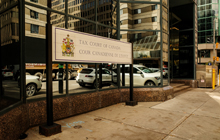Case Commentary: Yadgar v. The King — When trusting your accountant 100% is not an acceptable defence in the Tax Court Of Canada

Canadian tax lawyer and accountant David J Rotfleisch explains how an immigrant success story went wrong in the Tax Court of Canada and the court of appeal
Editor's Note: On February 6, 2025, the application for leave to appeal from the judgment of the Federal Court of Appeal was dismissed by the Supreme Court of Canada.
Introduction
An immigrant success story with a tax tale to tell
 |
David J Rotfleisch, CPA, JD is the founding tax lawyer of Taxpage.com and Rotfleisch & Samulovitch P.C., a Toronto-based boutique tax law corporate law firm. |
In June 2024, the Federal Court of Appeal issued the judgment on Yadgar v. The King, 2024 FCA 107, dismissing the appeal by the taxpayer and affirming the July 2023 ruling of the Tax Court of Canada. The CRA was allowed to reassess the taxpayer beyond the normal reassessment period and to impose gross negligence penalties. The taxpayer filed an application for leave to appeal to the Supreme Court of Canada in September 2024.
The taxpayer is Yadgar, an immigrant from Afghanistan, who completed high school and two years of university in physics in Afghanistan (it is not clearly stated in the case, but it does not seem that Yadgar graduated from university.) Yadgar immigrated to Canada in 1995 and started working as a butcher at Kabul Supermarket in Mississauga, Ontario. In 2004, Yadgar purchased 50% of Kabul Supermarket and, quickly, in the same year, owned 100% of Kabul Supermarket. In the next four years, he also became the sole shareholder of a grocery store and a shareholder of a storage business. The story of Yadgar was an immigrant success story.
Despite all the successes, Yadgar reported only $38,150 of income for the 2006-2009 tax years combined. Yadgar and Kabul Supermarket were later audited by the CRA, and Yadgar was determined to have an income of $512,211 for those tax years combined, or 13.5 times the reported amount, as a result of shareholder appropriations. Yadgar was also subject to gross negligence penalties.
Misrepresentation or fraud warrants reassessment beyond the normal reassessment period
It is not stated in the case when the reassessments were made, but it was not disputed that they were made beyond the normal reassessment period, which is three years for individuals and Canadian-controlled private corporations and four years for corporations other than Canadian-controlled private corporations.
The reassessment period, however, may be extended in case of misrepresentation attributable to neglect, carelessness, willful default, or fraud on the part of the taxpayer. The burden of proving misrepresentation or fraud belongs to the CRA.
In this case, the CRA alleged that Yadgar had misrepresented in his returns. Yadgar did not dispute the correctness of the reassessed income. He, however, argued that it was his accountant who misrepresented him, not him.
Complete reliance on an accountant is not a defence
Yadgar's argument was that Yadgar and Kabul Supermarket relied completely on Costa, the accountant that Yadgar had been using since he first came to Canada. Yadgar pled that he spoke little English and knew little about the Canadian tax system, that he gave Costa all the records of his family and businesses, that Costa prepared and filed taxes for his family and businesses, and that he never reviewed, never asked questions, and never even signed the returns.
Yadgar also pled that the shareholder appropriations, where Yadgar deposited Kabul Supermarket's cash sales to his personal account and transferred money from Kabul Supermarket's account to his personal account, were all Costa's advice. As such, he is not liable for the misrepresentations.
The Tax Court of Canada rejected this argument, and the Federal Court of Appeal agreed. By not disputing the reassessed income, Yadgar implied that the amount was indeed misrepresented. Misrepresentation can be attributed to neglect, carelessness or willful default.
The taxpayer must prove that he had acted diligently to contradict the CRA's evidence that he had acted negligently. In this case, Yadgar took no action to confirm the accuracy of his returns as he himself pled. He failed to exercise reasonable care and was thus negligent in the misrepresentations in his returns.
Objective nature of gross negligence standard
Regarding the gross negligence penalties, the taxpayer argued that his immigration background, low education, and lack of tax and language proficiency should be taken into account in consideration of applying the penalties.
The Tax Court of Canada again rejected this argument, and the Federal Court of Appeal agreed. The Tax Court of Canada reiterated that the standard for gross negligence is objective, meaning what a reasonable person would have done. Personal attributes are irrelevant.
In this case, a reasonable person would have been more concerned with his business and his own returns. Yadgar had exhibited a marked departure from what is normally expected of a reasonable taxpayer.
This is an interesting case because the taxpayer's argument actually backfired. By trying to shift the blame to his accountant, the taxpayer exposed his own negligence in ensuring the returns were correct.
A taxpayer may use this strategy by showing that he had reviewed the returns, questioned the accuracy, and consulted with experts to ensure compliance, thus proving due diligence on his part.
David J Rotfleisch, CPA, JD is the founding tax lawyer of Taxpage.com and Rotfleisch & Samulovitch P.C., a Toronto-based boutique tax law corporate law firm and is a Certified Specialist in Taxation Law who has completed the CICA in-depth tax planning course. He appears regularly in print, radio and TV and blogs extensively.
With over 30 years of experience as both a lawyer and chartered professional accountant, he has helped start-up businesses, cryptocurrency traders, resident and non-resident business owners and corporations with their tax planning, with will and estate planning, voluntary disclosures and tax dispute resolution including tax audit representation and tax litigation. Visit www.Taxpage.com and email David at david@taxpage.com.
Read the original article in full on Tax Law Canada. Author photo courtesy Rotfleisch & Samulovitch P.C. Title image: Tax return, gavel and calculator, iStock photo ID 932103656.





(0) Comments